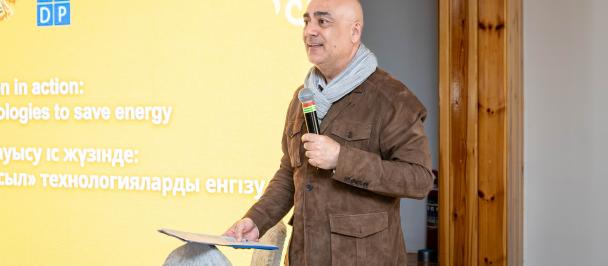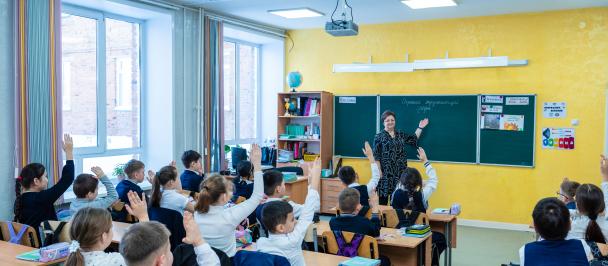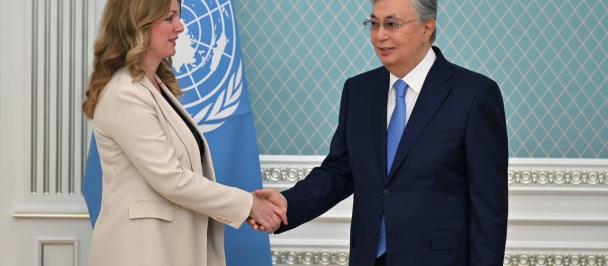UNDP presented the results of a nine-year project
More than 300,000 people in Kazakhstan now live and work in more comfortable conditions
April 19, 2024
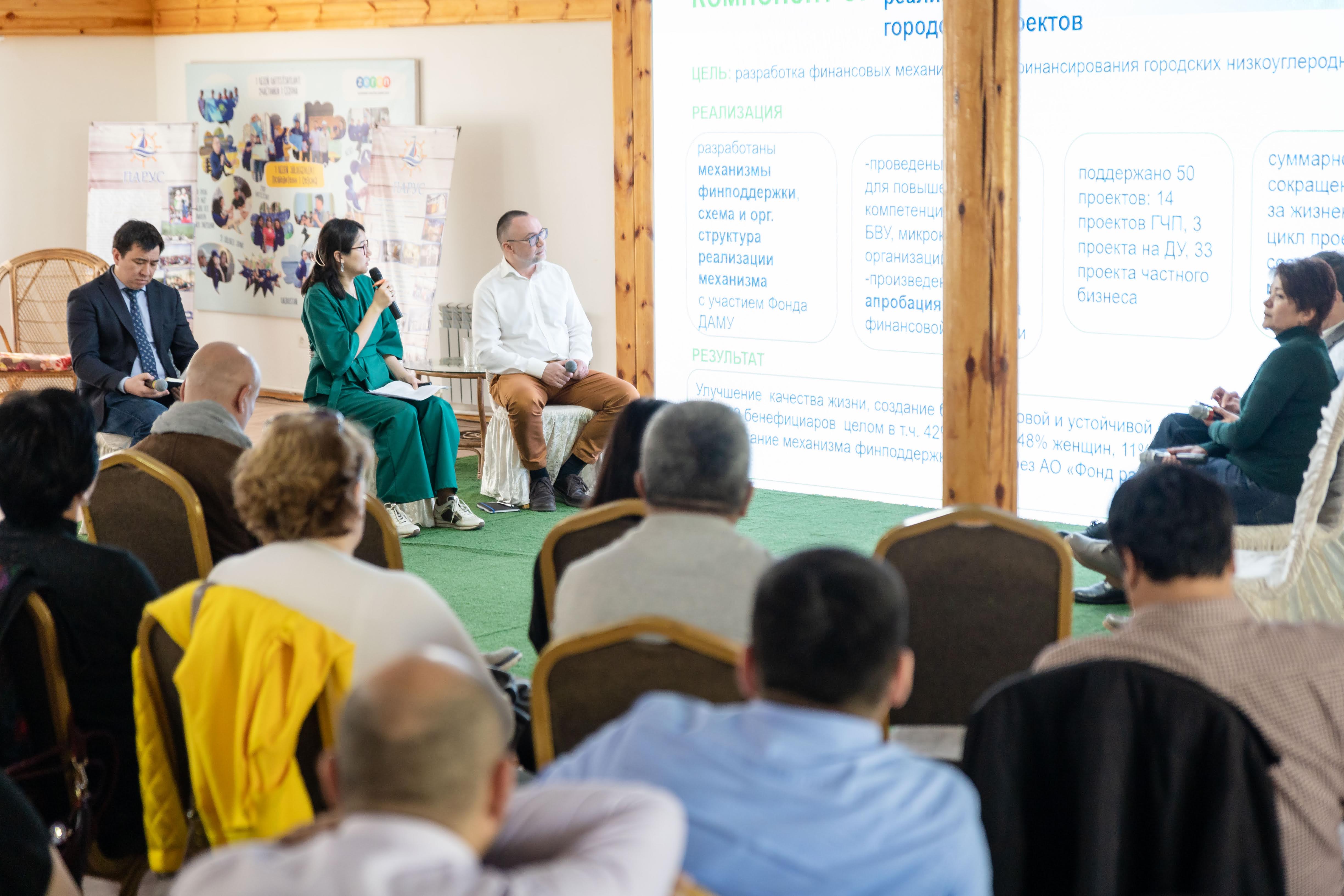
UNDP team presenting results of the nine-year project
The United Nations Development Programme (UNDP) in Kazakhstan presented the outcomes of a nine-year initiative that supported 50 pilot projects led by small and medium-sized enterprises. This effort successfully created improved living conditions for over 300,000 people across Kazakhstan. Additionally, the projects delivered economic advantages and fostered a greater commitment to environmental responsibility.
In Kazakhstan, while industrial enterprises are actively enhancing their energy efficiency, the largest increases in final energy consumption are observed in the transport, housing, and communal services sectors. The housing and communal services sector, in particular, is among the most energy-intensive in the economy, accounting for 34 percent of total energy use. According to UNDP an investment of approximately US$ 2.7 billion is necessary to improve energy efficiency in this sector. Additionally, modernizing multi-apartment residential buildings would require an investment of between $ 5-10 billion, with approximately 60,000 of the over 300,000 multi-apartment buildings in need of energy efficiency upgrades.
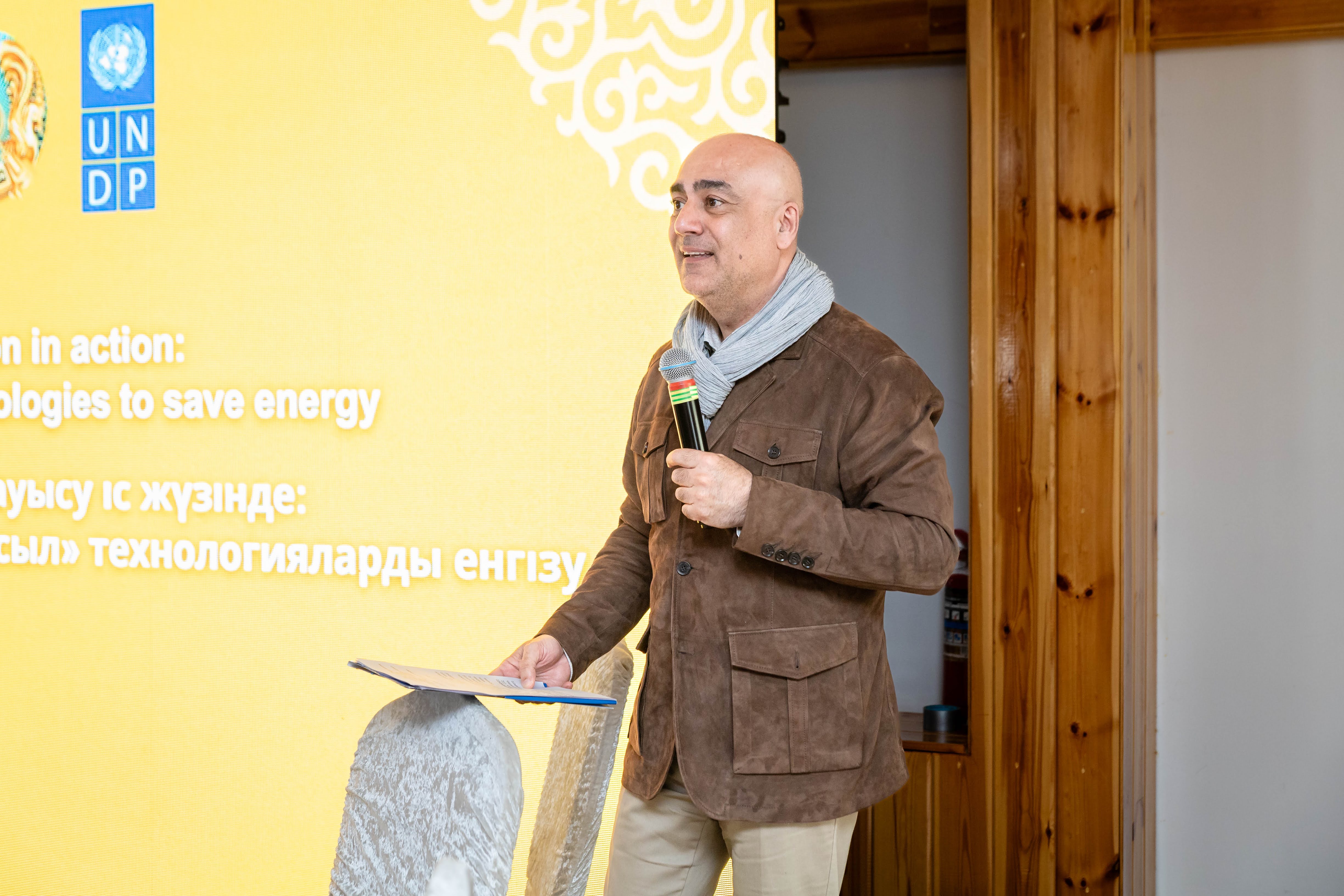
Sukhrob Khojimatov, UNDP Deputy Resident Representative in Kazakhstan, welcomes participants of the event
From 2015 to 2024, UNDP in partnership with the Ministry of Industry and Construction of the Republic of Kazakhstan and with financial support from the Global Environment Facility implemented an energy efficiency project across various regions of Kazakhstan.
An important part of the project was the creation of mechanisms for financial support. One of the developed financial instruments is a subsidy mechanism that covers a portion of the loan principal for small and medium-sized enterprises. Additionally, a co-financing mechanism was introduced for housing modernization, which pools funds from various sources, including apartment owners. This mechanism was piloted in the cities of Astana and Temirtau, enabling the attraction of business investments. It also assured apartment owners of a return on their contributions through savings on utility bills, facilitated by energy service contracts.
This project was also aimed at improving legislation and promoting the establishment of a green financing market in the field of energy efficiency and energy saving in Kazakhstan. The financial instruments developed during the project were scaled up and attracted investments through the Damu Entrepreneurship Development Fund JSC. Leveraging the UNDP's financial support instruments, private investments totaling $ 15 million were secured to implement 50 "green" projects. To date, the Fund has supported nearly 130 "green" projects, with a combined value exceeding 190 billion tenge.
“The project stands as a testament of the significant changes that can result from joint efforts. UNDP is ready to further bring innovations that will help lay the foundation for a sustainable and low-carbon future in Kazakhstan. The political will bolstered by the long-term cooperation and invaluable support of our national and international partners has enabled us to turn ambitious ideas into tangible actions for sustainable development for all,”said Sukhrob Khojimatov, UNDP Deputy Resident Representative in Kazakhstan.
The project's outcomes demonstrate that the implementation of energy efficiency technologies can significantly decrease energy consumption and reduce greenhouse gas emissions. These technologies include upgrading street and indoor lighting systems, modernizing boiler and heating systems with automated units, insulating buildings, revamping ventilation systems, and installing solar panels, collectors, heat pumps, and biomass boilers. Due to their simplicity and rapid implementation, these technologies are actively applied across various sectors, including housing and communal services, commerce, warehousing, transport, and agriculture.

Saule Inakhanova, Head of the Department for Energy Saving and Energy Efficiency of the Committee of Industry of the MIC RK
“The pilot projects have proven to be effective and have shown that the implementation of energy-efficient technologies can lead to heat savings of up to 20 percent. With a comprehensive thermal modernization of buildings, these savings can even be up to 50 percent. In view of these results, our ministry is striving to extend these successes to all regions of the republic and to continue our cooperation with international organizations,”says Saule Inakhanova, Head of the Department for Energy Saving and Energy Efficiency of the Committee of Industry of the Ministry of Industry and Construction of the Republic of Kazakhstan.
Participants of the event during discussions
The adoption of these technologies has significantly impacted environmental conservation efforts. The total volume of reduced and prevented greenhouse gas emissions from energy savings achieved by 50 implemented projects is estimated at 1,108,652 tons of CO2 over the projects' lifecycles. Moreover, the initiative has enhanced the quality of life and fostered a healthier, more sustainable environment for 311,799 people, including 148,928 women, 129,953 men, and 32,918 children.
It is noteworthy that the UNDP is implementing similar energy efficiency and energy-saving solutions in Bosnia and Herzegovina, Moldova, Uzbekistan and Ukraine.

 Locations
Locations








